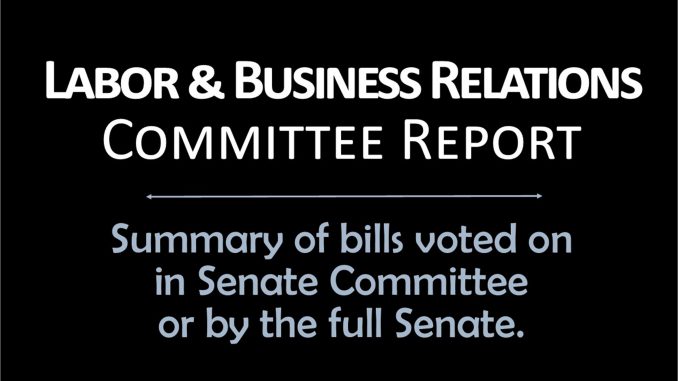
On this page
FLOOR ACTION:
SF 2366—Medicaid Work Reporting Requirements
SF 2366, as amended, prohibits the Department of Human Services (DHS) from seeking, applying for, accepting or renewing any waiver of work requirements for the SNAP program. The Trump Administration already is taking this option away from states. The final rule is set to take effect on April 1, 2020, though any legal challenges could cause delays in the implementation date of the rule.
It requires SNAP recipients, unless federally exempt, to be assigned to an employment and training program as funding and services are available.
The bill requires DHS to submit any state plan amendment or waiver necessary, and adopt rules as necessary to administer this bill. The bill requires Medicaid Health and Wellness Plan members to be employed or self-employed and receiving gross weekly earnings at least equal to the state minimum wage multiplied by 20 hours; participating in and complying with a work program; volunteering 20 hours a week; participating in PROMISE Jobs; participating in Future Ready Iowa; or other activities identified by DHS.
Some Medicaid members are exempt, including medically exempt; pregnant; parent or caretaker responsible for the care of a dependent child under six years or age; parent or caretaker personally providing the care for a dependent child determined to be disabled by the Social Security Administration; those receiving unemployment compensation and complying with work requirements that are part of the federal-state unemployment compensation system; those participating in a drug rehabilitation program; those enrolled full-time in school; parent that is home-schooling; or caregiver of an adult determined disabled by the Social Security Administration.
DHS must check compliance at six months and give 30-days’ notice before benefits are terminated for the remainder of the benefit year. An individual may reenroll for the remainder of the current benefit period if they subsequently comply with the requirements.
The bill also makes changes to the Child Care Assistance
program by creating a graduated eligibility phaseout component. This will
be a state-only funded phaseout program, in addition to the Child Care
Assistance Plus program. It does nothing to make more Iowa families
eligible for child care assistance at initial eligibility determination.
[3/3: 31-18, party line (No: Nunn; Excused: Wahls)]
